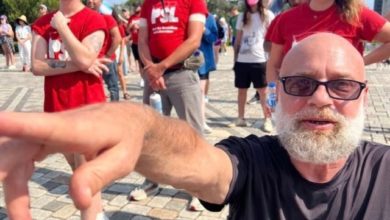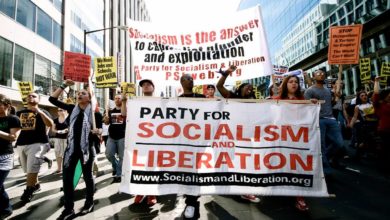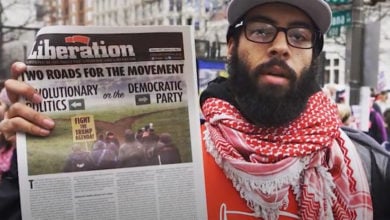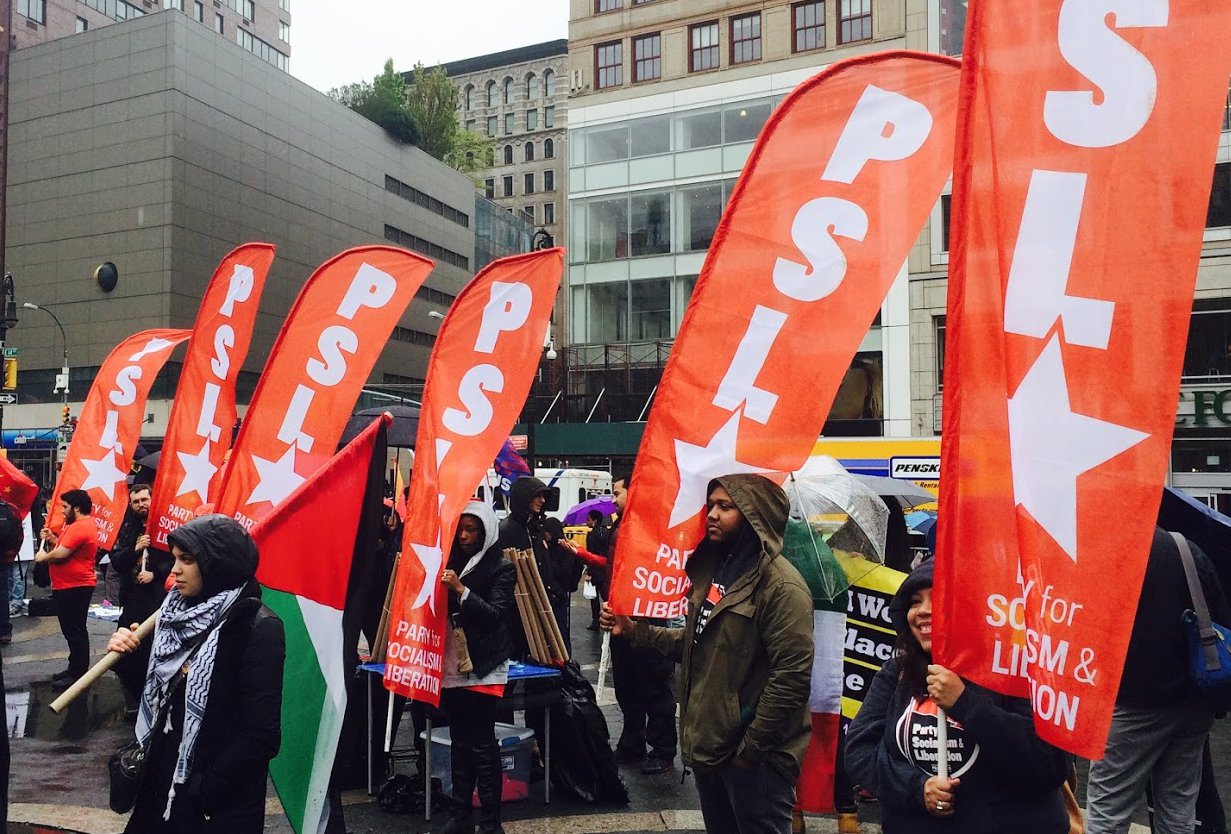Following is a talk
given in a panel titled “Fighting the expanding police state” at the Nov.
13-14, 2010, National Conference on Socialism sponsored by the Party for
Socialism and Liberation.
We have all seen the YouTube videos, or know about the few
incidents of police brutality that become national news. Some of us in this
have room have probably suffered or witnessed incidents of police brutality. We
are taught to treat each incident as a separate and unique incident. We are
often told to sympathize with the police officers responsible, whose brutality
is attributed to their “high stress” job and the threat of violence they
supposedly face every day. This is particularly the image we get from all the
cop shows on TV—of the overworked, idealistic cop who must make split-second
decisions that the rest of us would never dream of.
Even when the incidents of brutality are so clear that the
officers are condemned for their actions—and this only happens rarely, usually
when there is a video to show what really happened—the cops are portrayed as
“bad apples.”
But the politicians, news organizations and TV shows won’t
talk about the real problem: police brutality is a social phenomenon. Such
incidents are not particular instances, nor are they by any means uncommon in
oppressed communities. I did a YouTube search for “police brutality” before I
came here today and 21,900 videos popped up. Police brutality clearly exists
regardless of the intentions of the police officers, regardless of whether
there are “good cops.”
It is worth thinking a bit more about Oscar Grant, whose
police executioner was given two years in prison – the minimum sentence. After
time already served and good behavior credits, Johannes Mehserle will likely
serve an additional six to seven months. That slap on the wrist was a slap in
the face to the Grant family. Here we have a video of a cop standing over and
executing an unarmed youth, face down on the floor.
In Oakland, protesters carried signs that said, “Killer cops
get less time for killing young Black men than Michael Vick gets for dog
fighting.”
These types of sentences, however, are not exceptional. It
is a case of the justice system protecting its foot soldiers. They have to be
perfectly clear to their officers in uniform that they should not have any
hesitation when it comes to brutalizing poor Black and Latino communities.
If you think about it, the only thing that was really
exceptional about Oscar Grant’s case was not that it happened, or how it
happened, but that so many people were there to witness it and take video of
it.
If there had been no video, would we even know Oscar Grant’s
name? Would it have even made the papers at all? His family would be suffering
all the same, but Officer Mehserle would undoubtedly still be patrolling as we
speak.
That is the reason why several states are trying to make it
illegal to videotape police officers, or at least use video that contains
audio. With more and more ways to take pictures or images, police departments
are lobbying state legislatures to pass laws which in effect allow them to
operate without public oversight. From what I could find, in only three states
have they been able to succeed with this, but they are definitely trying it
elsewhere.
The fact that police departments are doing this nationwide says
something. It shows that it is not just a question of individual cops. The cops
are not just trying to avoid recordings because they are sleazy, but because of
the nature of their work. They cannot play their prescribed function in
society—which is to criminalize and intimidate oppressed sectors—if they have
to worry about being watched. Of course workers in every other sector are told
to accept that they can be videotaped everywhere: on factory floors, in
offices, in retail stores, everywhere. But cops say they have a special
exception to this trend.
The root of the problem
Marxists have always
paid close attention to the role of police and other armed forces of the state.
We begin from the standpoint that a tiny ruling class draws all its wealth from
the exploitation of the great majority. It can only protect this highly unequal
society through armed force or the threat of it. It has a whole host of
repressive institutions like the police, the army, the courts, the prisons, etc.—which
do not act impartially, but serve to protect the rule of the few. State
repression flows from the nature of the state itself; in fact, its primary
function is to repress.
The state is a huge drain on state budgets. New York City
has 35,000 cops—larger than some countries’ entire military forces. While
cutbacks are happening in education, health care and housing, police budgets
only continue to expand. In San Francisco, cops receive $200,000 a year plus
overtime and retirement benefits. And yet all we hear about is supposedly
“greedy” teachers.
It is the same even in small towns and cities. I came across
the information for a small suburban town, Ironduquoit, which is outside of
Rochester, New York, and has been hit hard by deindustrialization. The town has
a huge deficit, but 52 percent of the budget goes to the police. In every
region of the country, the tiny ruling class runs the government, and in each
place they understand the centrality of a fully armed and funded repressive
state apparatus.
So that’s what the state stands for.
Racist police
brutality
If you’ve been around the Party for Socialism and Liberation,
you’ve probably noticed that we frequently protest against racist police brutality
when it occurs in Black and Latino communities. I want to take a minute just to
talk about that because it is important that we are clear about it. It is
fairly clear that the phenomenon of police brutality in Black and Latino
communities is in fact the norm, and not the exception. What explains this?
It is in large part
because a disproportionate number of poor people in the country are Black and
Latino, and other people of color. There are tens of millions of poor white
people, who definitely have their own experiences with police brutality and
harassment. But the urban neighborhoods that Black and Latino poor people have
been historically confined to—because of racist housing and employment patterns—become
places of extremely concentrated poverty.
So when we say “racist police brutality,” we don’t have to
conduct a psychological experiment on the officers to see if they hold racist
beliefs. We are saying that the criminal justice system itself is built on
racism and the targeting of Black and Latino neighborhoods.
Obviously, we could take this conversation in a whole range
of directions: from the prison industrial complex, the targeting of young Black
and Latino men, the stereotypes promoted in the media, etc. But I think I will
stop here just to frame the next presentations.






